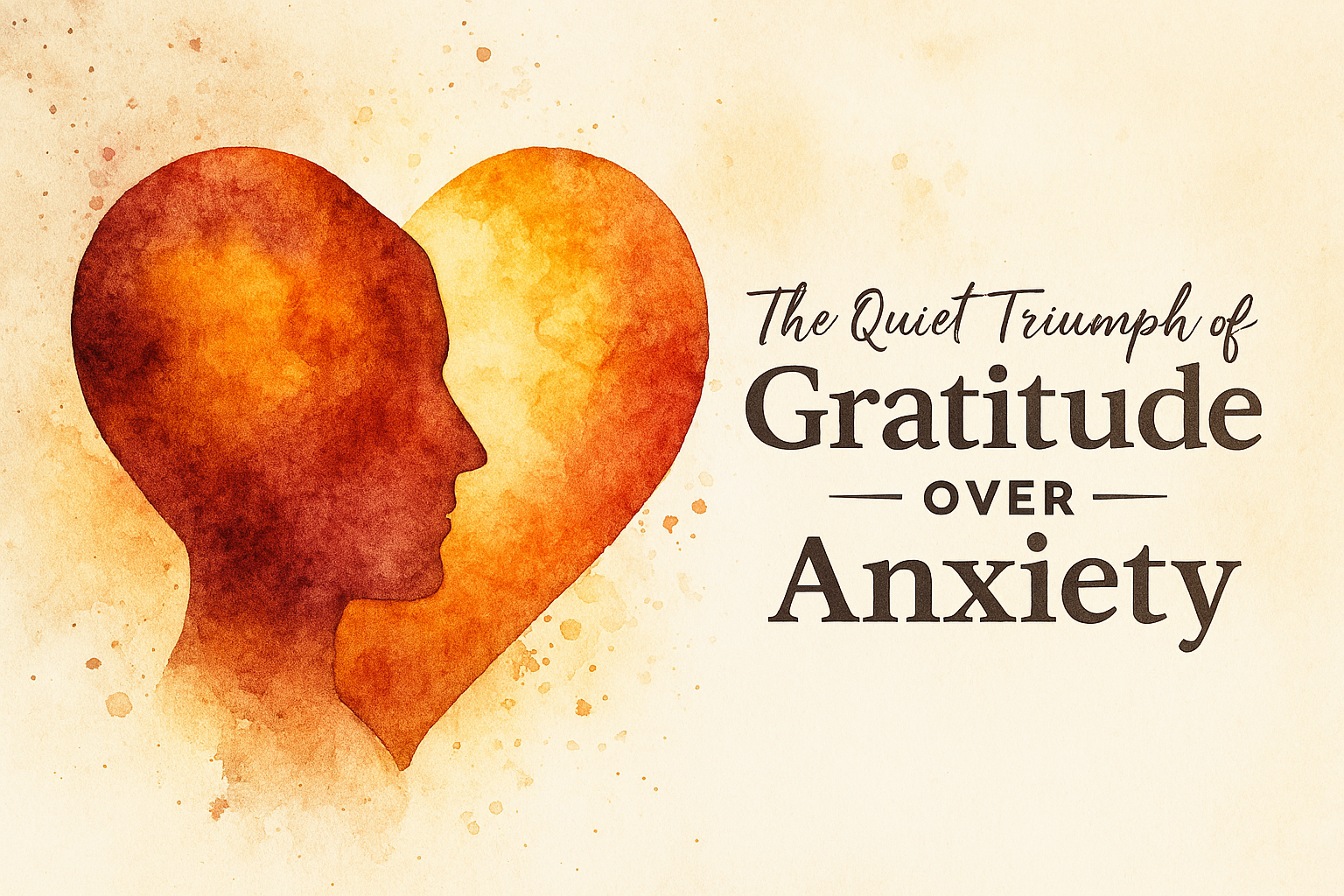The Quiet Triumph of Gratitude
Countless souls wrestle with anxiety — its racing thoughts, its tight grip on the chest, its unrelenting whisper of “what if.” Anxiety, though often rooted in real suffering, tends to distort reality, magnifying fear and shrinking hope.
But there’s a spiritual counterweight that, when practiced intentionally, begins to loosen anxiety’s hold: gratitude.
🌿 Gratitude as a Spiritual Discipline
In Philippians 4:6–7, St. Paul writes,
“Do not be anxious about anything, but in every situation, by prayer and petition, with thanksgiving, present your requests to God.”
Notice the hinge: with thanksgiving. Gratitude isn’t a denial of pain—it’s a reorientation. It shifts our gaze from the storm to the One who walks on water. When we thank God, even in the midst of uncertainty, we reclaim our spiritual authority over fear.
🧠 Gratitude and the Brain
Psychologically, gratitude activates the brain’s reward centers, increasing dopamine and serotonin—neurochemicals that foster calm and resilience. It also interrupts the anxious loop by redirecting attention. In therapy, we often invite clients to name three things they’re grateful for each day. Over time, this simple practice rewires perception, making space for peace.
🙏 Gratitude in Catholic Tradition
Catholicism is steeped in gratitude. The Eucharist itself means “thanksgiving.” Every Mass is a liturgical act of gratitude—offering our brokenness, receiving grace. When clients feel overwhelmed, I remind them: you are not alone. You are part of a Church that sings gratitude even in suffering. Saints like Thérèse of Lisieux and John of the Cross modeled this beautifully, praising God in darkness.
💬 Practical Ways to Cultivate Gratitude
• Gratitude journaling: Write down moments of grace, however small.
• Liturgical mindfulness: Attend daily Mass or pray the Divine Office with a heart of thanksgiving.
• Gratitude letters: Write to someone who has blessed your life—even if you never send it.
• Sacramental reflection: Recall your baptism, confirmation, or confession as moments of divine generosity.
🌅 Gratitude Doesn’t Erase Anxiety — It Transfigures It
Gratitude doesn’t mean pretending everything is fine. It means choosing to see God’s presence even when things aren’t. It’s a spiritual defiance of despair. And in that defiance, anxiety begins to lose its sting.
We are called to walk with others not only through clinical healing, but spiritual renewal. Gratitude is one of the most powerful tools we can offer—a quiet triumph that opens the heart to grace.


